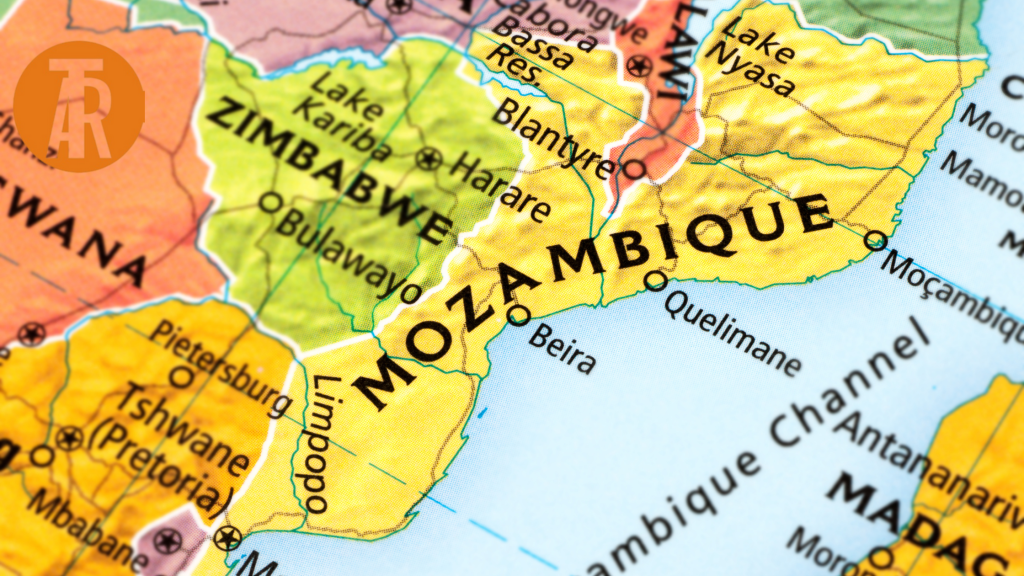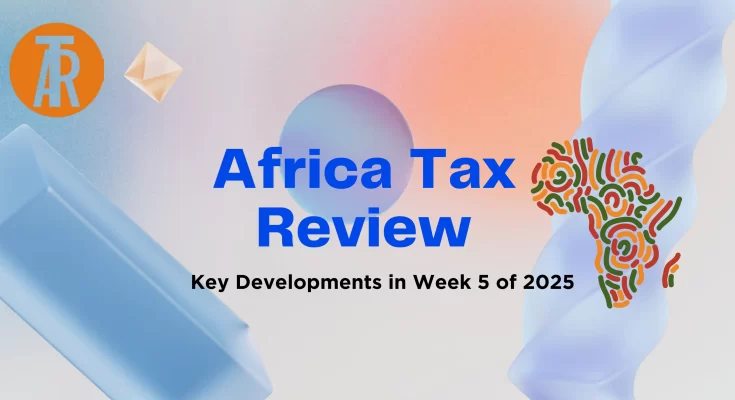As January came to a close, tax policy across the African continent continued to evolve with notable developments in Nigeria, South Africa, Namibia, Mozambique, and Kenya.
The focus during this fifth week (January 27–February 2, 2025) was largely on structural reforms aimed at improving compliance, boosting revenue, and aligning with international standards.
These measures—ranging from VAT rate adjustments to dividend taxation and transfer pricing rulings—reflect Africa’s drive to create resilient and competitive fiscal systems.
1. Nigeria: House of Representatives Approves Sweeping Tax Reform Bills

In Nigeria, the House of Representatives passed critical tax reform bills aimed at refining fiscal distribution and simplifying tax policy. Among the key provisions is the retention of the 30% corporate income tax rate, excluding small businesses.
A new VAT revenue allocation framework was also adopted—10% to the Federal Government, 55% to State Governments (including the FCT), and 35% to Local Governments. Notably, allocations to states will now be determined using a 20% population factor and a 30% consumption factor.
Additionally, the proposed 5% excise duty on telecom services was officially removed, which had been previously criticized as inflationary.
These updates were detailed in ENSafrica’s Africa Tax in Brief – January 2025 Edition, emphasizing Nigeria’s commitment to balance revenue generation with affordability and equity.

2. South Africa: 2025 Budget Introduces Phased VAT Hike and Fiscal Drag Measures
On January 31, 2025, South Africa’s Finance Minister, Enoch Godongwana, delivered the 2025 Budget Speech, introducing a two-step VAT rate increase.
The VAT will rise from 15% to 15.5% on May 1, 2025, and further to 16% by April 1, 2026. To mitigate the impact on low-income groups, the Treasury announced an expansion of the zero-rated food basket to include edible offal and canned vegetables.
In addition, the personal income tax brackets will remain unadjusted for inflation, creating a fiscal drag effect that increases tax revenue as nominal incomes rise.
The Employment Tax Incentive (ETI) thresholds were also revised to increase support for youth employment: employees earning between R2,500 and R5,500 monthly will now qualify for the maximum monthly incentive of R1,500.
These highlights are sourced from RSM South Africa’s Tax Highlights – 2025 Budget Speech, reflecting South Africa’s ongoing balancing act between revenue needs and social equity.

3. Namibia: Tax Relief and Investment Incentives in the 2025/26 Budge
In Namibia, the 2025/26 Budget presented by the Minister of Finance on January 27, 2025, introduced a mix of tax relief and investor-friendly reforms.
The key proposals include a reduction of the non-mining corporate income tax rate from 32% to 30%, effective January 1, 2025, with a plan to reduce it further to 28% by FY2026/27.
To align with global tax practices, Namibia also proposed the introduction of a 10% dividend withholding tax, applicable from January 1, 2026. Furthermore, the government announced the implementation of an e-invoicing system for all VAT-registered persons, to take effect from April 2026.
These tax measures, as reported by ENSafrica’s January 2025 Brief, aim to improve transparency, attract investment, and strengthen digital tax administration.

4. Mozambique: Strategic VAT Exemptions Reinstituted
In a bid to cushion the rising cost of living and support local manufacturing, the Mozambican government reintroduced VAT exemptions for sugar, cooking oil, and soap, effective January 2025.
These exemptions had previously been suspended, but were reinstated following consultations with industry stakeholders and cost-of-living analyses.
According to ENSafrica’s regional tax coverage, the exemptions are designed to provide immediate relief to consumers and ensure the competitiveness of essential goods producers in Mozambique.

5. Kenya: Tax Tribunal Emphasizes Transfer Pricing Documentation Standards
Kenya’s Tax Appeals Tribunal (TAT) delivered an important ruling on intra-group transactions during this week. In a case involving group service pool arrangements, the Tribunal held that credible and competent evidence must justify any group service invoicing that is not subject to a markup.
This decision reaffirms the principle that transfer pricing documentation must meet the arm’s length standard, particularly in the context of shared services, and highlights the need for robust cost allocation methodologies and intercompany agreements.
This landmark ruling was reported by Meijburg & Co in their Africa Tax Newsletter – February 2025, which emphasized that MNEs operating in Kenya must ensure thorough compliance with local transfer pricing requirements.
Conclusion: Africa Tax Review: Key Developments in Week 5 of 2025
Week 5 of January 2025 underscores Africa’s accelerated tax transformation, marked by a blend of policy tightening, revenue innovation, and administrative modernization.
With countries like Nigeria, Namibia, and South Africa taking bold tax decisions, and Kenya and Mozambique reinforcing compliance and strategic exemptions, the continent is embracing reform to build resilience and fairness in its tax systems.
To stay informed on developments like these, subscribe to Africa Tax Review and explore weekly updates at www.africataxreview.com.
Olatunji Abdulrazaq CNA, ACTI, ACIArb(UK)
Founder/CEO, Taxmobile.Online




